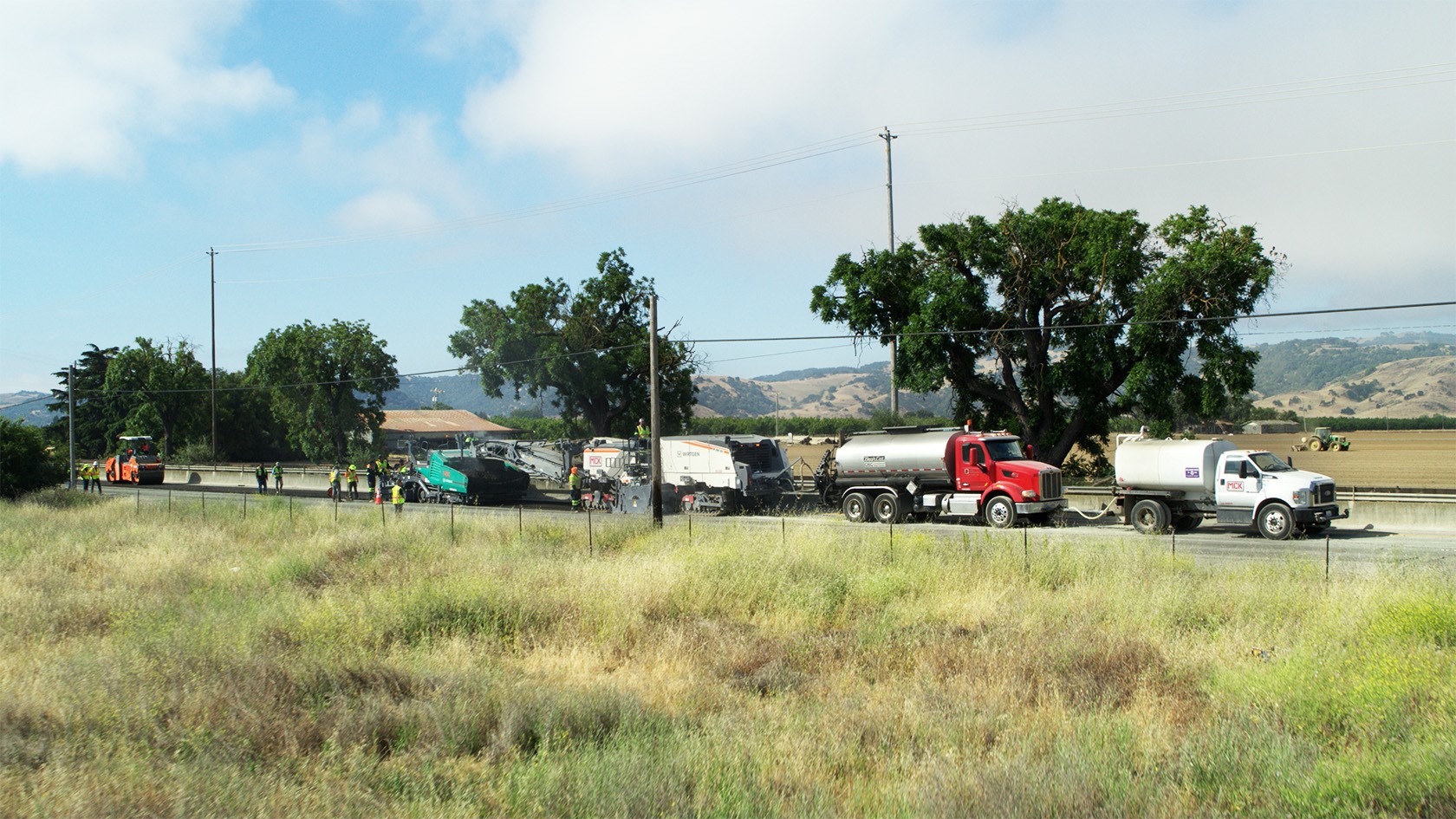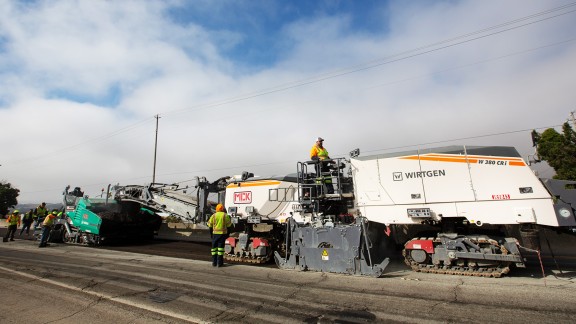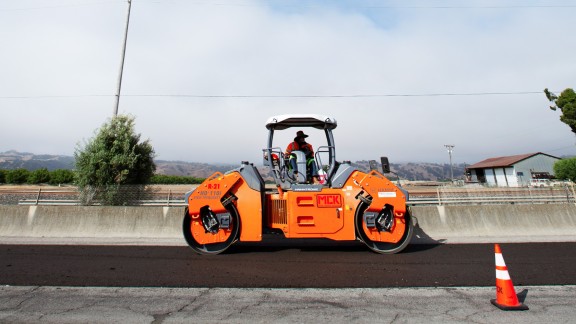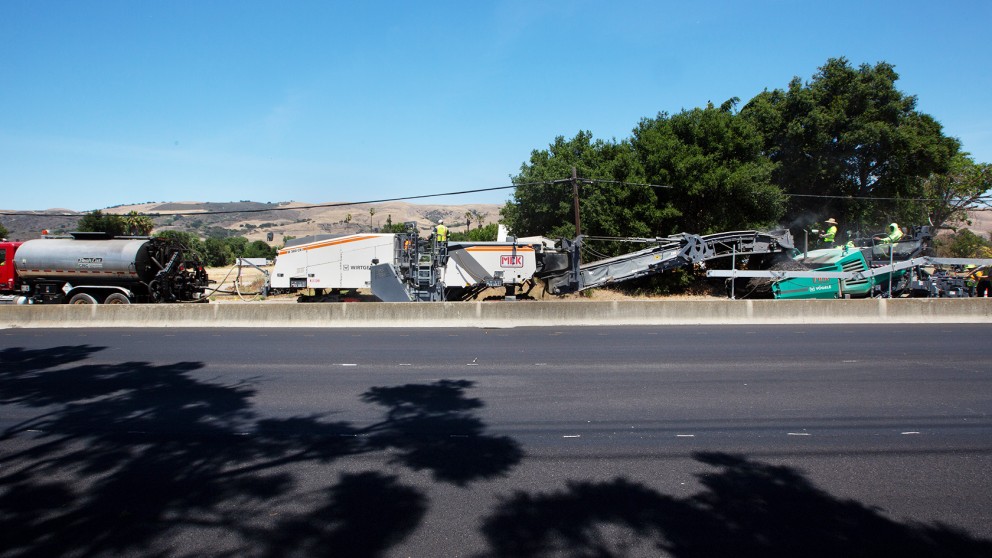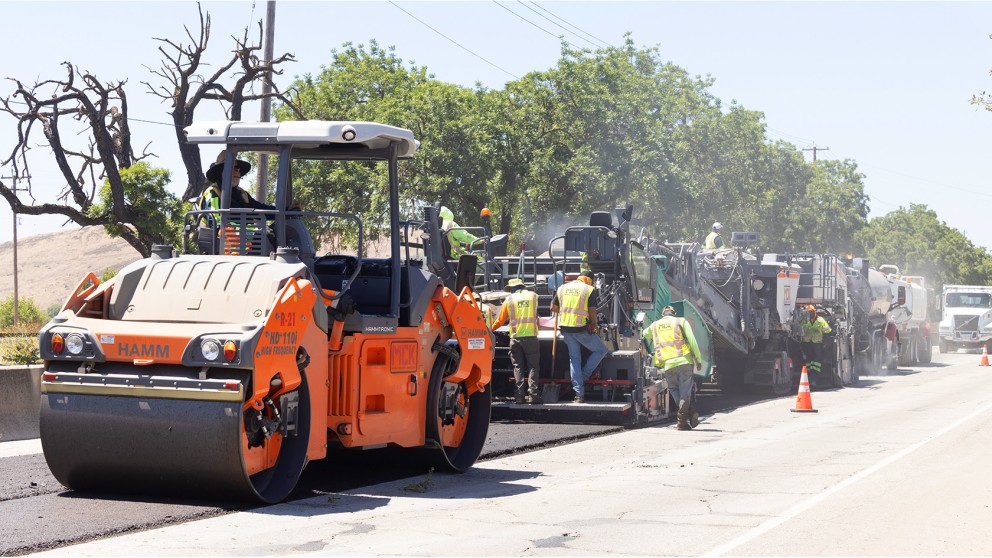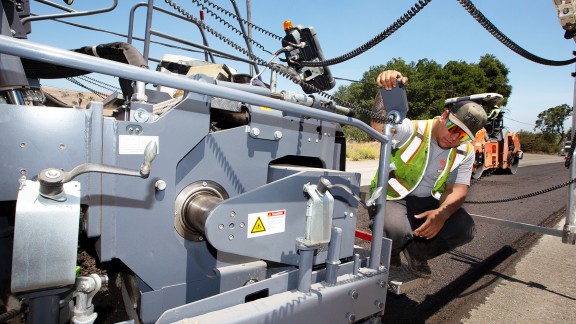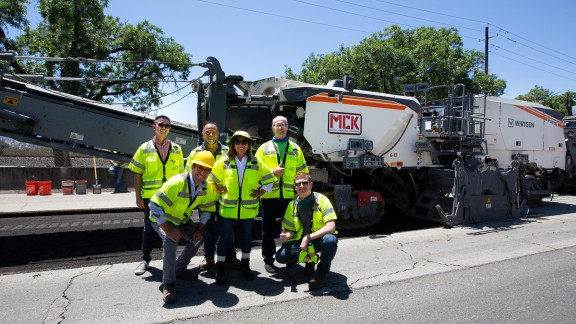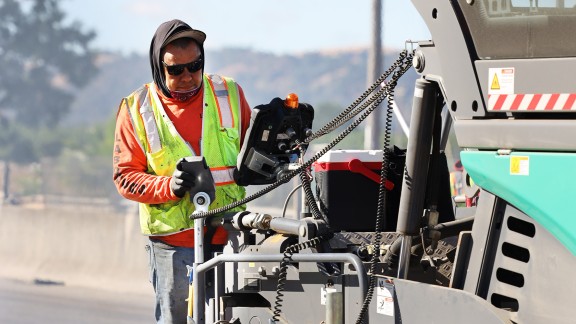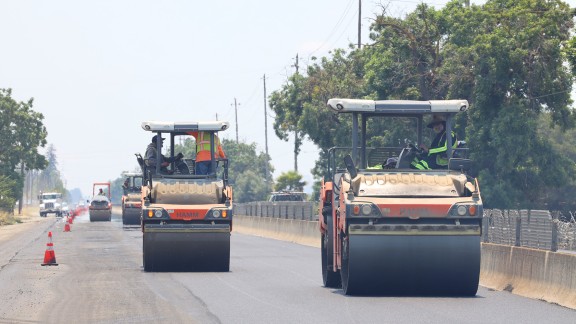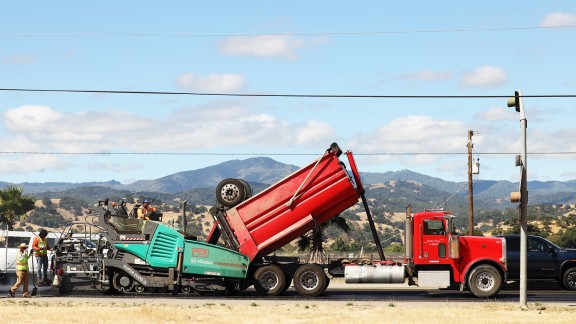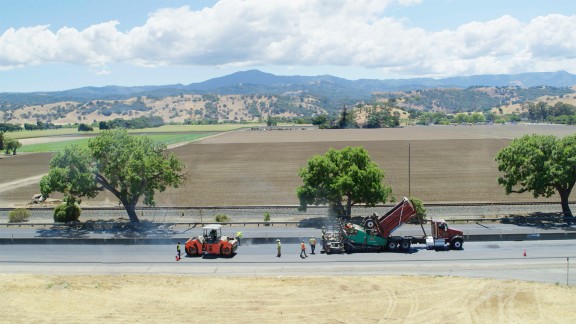Win-win situation for taxpayers and the environment
‘The method save a lot of time and energy, and cuts costs, too. We don’t have to transport truckloads of asphalt away from the site, and we can re-use the mineral aggregates we recover. And that means we have no disposal costs’, said Rick Scott, speaking for the Department of Transportation. ‘That you can get the traffic flowing again in such a short time is one of its countless benefits for road users, too.’
The method has also convinced John Moffat, Vice-President of MCK Services: ‘Cold recycling with state-of-the-art machines like the W 380 CRi saves the taxpayer a lot of money. Over the past ten years, MCK has recycled close to 2.3 million square metres of pavement. In comparison with conventional rehabilitation methods, cold recycling cuts our costs by around 40%. On this project alone, we recycled about 205,000 square metres of existing pavement and were able to re-use 100% of the material we removed.’
As cold in-place recycling significantly reduces materials logistics to and from sites, Moffat believes it will dominate the future of road rehabilitation: In San José, we needed only five trucks on the site instead of the usual thirty, so our carbon footprint was appreciably smaller.
